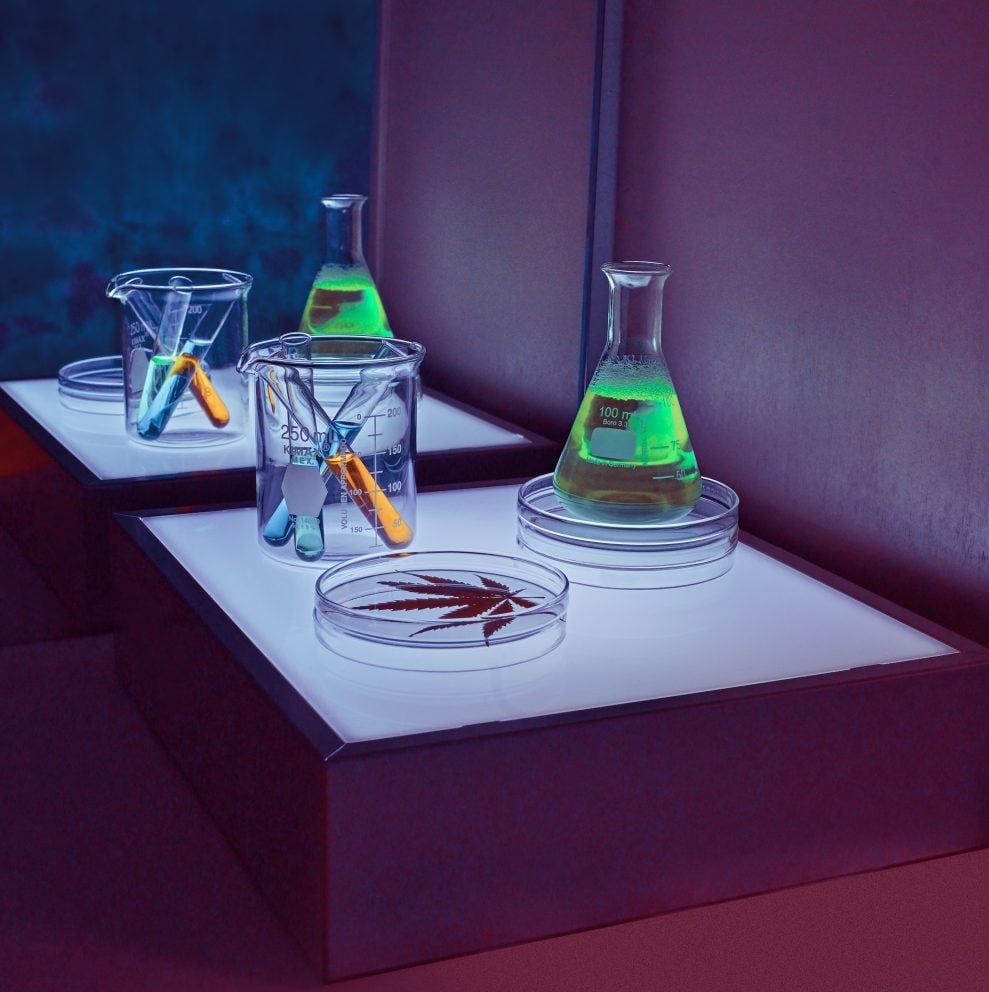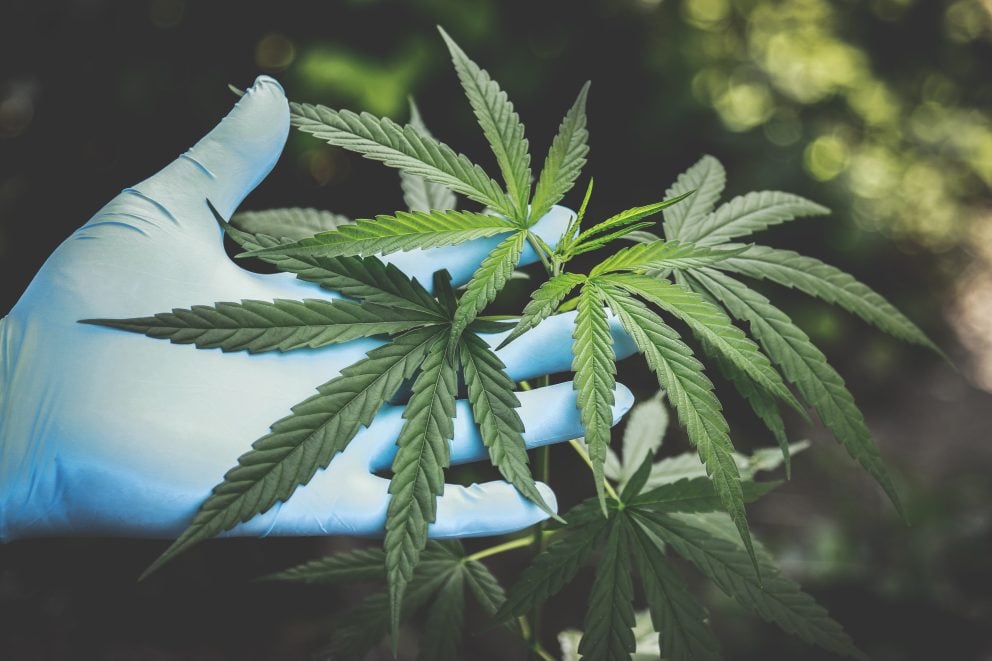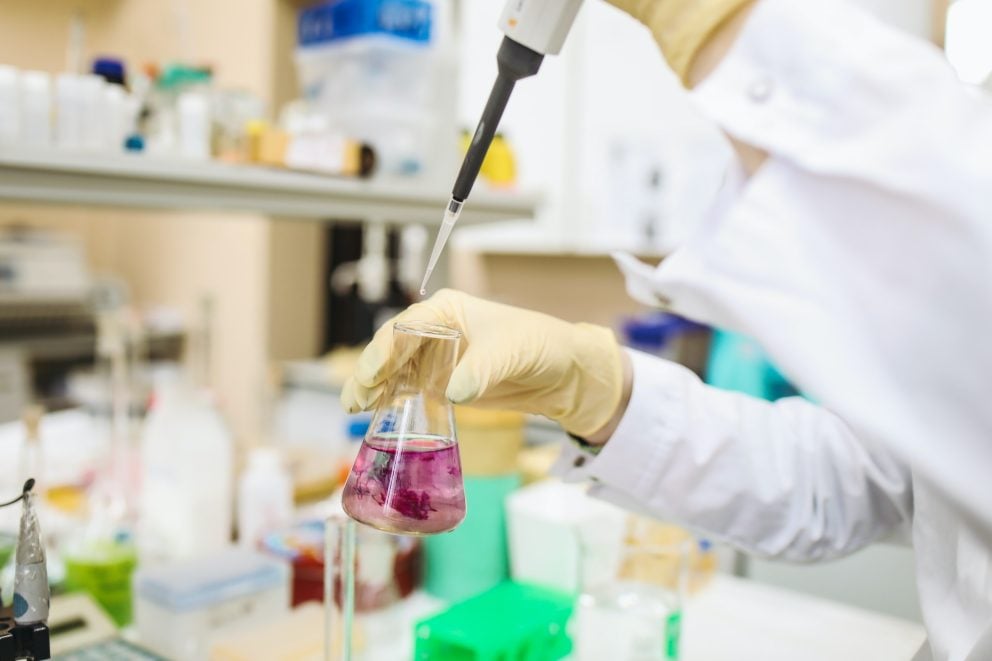
Photo by Girl with red hat
There are hundreds of chemicals in marijuana that interact with the human body called cannabinoids. We know THC and CBD but not necessarily some of the more obscure cannabinoids like HHC that are found in such trace amounts.
Cannabinoids are driving so much more than just medical marijuana research and development but also rapid growth of the cannabis industry. Eager to make money from the growing demand for cannabis products, many are turning to chemistry to harvest and synthesize more obscure cannabinoids to pursue a legal version of the high from THC, only made from hemp.
The industry is shifting beyond focusing on THC and CBD to expanding to these rarer cannabinoids like delta-8-THC, and delta-10-THC. These chemical variants of THC offer a legal workaround that can technically give people access to the high of THC while avoiding criminalized cannabis.
Harvested using legal hemp, HHC is another chemical variant of THC. Unlike delta-8 and delta-10, which are isomers, HHC is the hydrogenated version of THC that boasts its own unique benefits. What is the main difference between HHC and THC? Is HHC safe? How legal is HHC and where can you find it?
This article will cover the ins and outs of this new cannabinoid and give you a picture of if it might work for you.
[fl_builder_insert_layout id=13138]
What is HHC?
HHC is short for Hexahydrocannabinol (HHC) and is a hydrogenated version of delta-9 and delta-8-THC. Hydrogenated essentially means it’s exposed to hydrogen which adds a few hydrogen atoms altering its chemical make-up.
In the same way we hydrogenate oil to turn it into margarine, HHC is the I can’t believe it’s not butter version of THC.
HHC has been around since the 1940s but has only recently gained traction as people are hunting for semi-legal cannabinoids. It was first synthesized in 1944 by Roger Adams, a gifted organic chemist who discovered THC and cultivated and identified CBD.
Despite being outlawed by the 1937 Marijuana Tax Act, Adams fought to legally study cannabis. He discovered and named Adam’s catalyst, a.k.a. Platinum dioxide, which is used in various chemical reactions including hydrogenation, hydrogenolysis, dehydrogenation, and oxidation.
Essentially, in hydrogenation, hydrogen is added to a chemical compound using a metal. For HHC you saturate THC with hydrogen atoms using high pressure and a metal catalyst like nickel or palladium. In the case of Adams, he used platinum dioxide.
Why would a decades old version of THC be in such high demand? There’s been a huge push for cannabinoids that can offer cannabis consumers something new, or to find a loophole to offer people a legal high in areas where cannabis isn’t legal.
All cannabinoids come from CBG and various chemical processes inside the cannabis plant will alter a cannabinoid’s make-up. For example, CBG-A, the acid that becomes CBG, will become THC-A or CBD-A depending on the needs of the plant.
Similarly, as THC breaks down, over time, it will create delta-8-THC, delta-10-THC, HHC, and CBN. These are all psychoactive compounds but are all less reactive than traditional THC. CBN is often found in decent amounts while the rest can be very rare.
With a little chemical finagling, CBD harvested from hemp, or delta-8-THC also obtained from legal hemp can be hydrogenated and converted into HHC. The goal is to market legal cannabinoid products to people nationwide.
Unlike the deltas, HHC does have some benefits that can even make it even slightly superior to THC.
Photo by Aphiwat Chuangchoem
What is the Difference Between HHC and THC?
The main difference between HHC and THC is the extra hydrogen atoms. These hydrogen atoms may not seem like much but they do offer some unique chemical benefits that can even surpass THC.
This extra hydrogen helps increase HHC’s binding affinity for the CB1 and CB2 endocannabinoid receptors, as well as the TRP pain receptors.These receptors govern different body processes.
CB1 receptors govern metabolism and some cognitive processes. Attachment to CB1 receptors is part of the cause of the “high” of THC. CB2 receptors govern immune cells and inflammation. This combination means that HHC can offer you some psychoactive benefits as well as pain relief, appetite-support, and euphoric feelings.
Another benefit of hydrogenation is that it makes HHC more stable. THC can expire as exposure to oxygen oxidizes THC causing it to break down. In oxidation, THC will lose hydrogen atoms and will convert into CBN, along with trace amounts of delta-8 and delta-10.
CBN only has about 10% of the potency of THC so there’s a lot of power in that hydrogen. HHC is more stable and doesn’t lose its potency when exposed to oxygen, heat, or light which are the top 3 enemies of THC. These three often make your flower and edibles go bad.
One similarity between HHC and THC is that HHC has a few isomers. Deltas 8, 9, and 10 are all different isomers of THC. HHC has its own isomers including Cannabiripsol and other variants with long chemical names like 9α-hydroxyhexahydrocannabinol and 7-oxo-9α-hydroxyhexan-hydrocannabinol.
Most importantly, HHC and THC can function in slightly different ways in your body.
HHC Effects
What is the difference between THC and HHC in how they affect the body? HHC can offer a subtler high, while it has a stronger affinity for both the CB1 receptors it also has an affinity for the CB2 receptors.
This can temper some of the “high.” HHC is said to be relaxing and euphoric. It can help with pain management, relaxation, and in treating anxiety.
HHC is estimated to be 80% as potent as delta-9 and more potent than delta-8 and delta-10. Delta-8 doesn’t have the same affinity to CB1 receptors and delta-10 doesn’t have any particular affinity for CB receptors at all.
HHC is said to be more bioavailable than THC. THC and CBD are not as bioavailable to the human body. After all, part of the reason why you consume cannabis with fats is to increase their bioavailability.
HHC is said to metabolize better in the human body allowing for more of the benefits of the cannabinoid. That means that the body will use more of the HHC and make use of it. This ability to be metabolized may be why many say that HHC cannot be detected on drug tests.
Drug tests often check for the metabolites, essentially the chemicals leftover in your body after you use them. There is no concrete evidence that HHC will not be detected. This should not be assumed as drug tests can vary in what they are testing for.
A 2011 study found a connection with HHC and the shrinking of tumors in cancer patients, suggesting it has a future potential as a treatment option.
What Are the Side Effects of HHC?
HHC can have the same side effects as THC it can cause:
- anxiety or paranoia
- dry mouth
- dry or red eyes
- hunger a.k.a. the munchies
- insomnia
- heart palpitations
There is the potential for other side effects if you’re exposed to toxic chemicals or heavy metals.
Is HHC Safe?
HHC is generally safe, after all, it naturally occurs in small amounts in the cannabis plant. If you’ve consumed cannabis you’ve likely been exposed to HHC. There is nothing inherently toxic about HHC.
That being said, the issues of all of the technically legal cannabinoids is the lack of regulation in the industry and the lack of adequate testing for these concentrations on the body.
In order to hydrogenate cannabis, you do need a catalyst which can often be a heavy metal. With regulation, comes testing. Unlike with legalized cannabis, not all of these “federally legal” cannabinoids are tested for these heavy metals or the chemical remnants from the various processes used to make them.
Since they’re not regulated like THC and CBD, retailers are not legally required to test their products both for chemicals and accurate concentrations. This can lead to potential misuse or exposure to harmful chemicals which can cause other side effects.
Another issue is that there hasn’t been adequate study for how these hemp-derived cannabinoids affect the human body in the concentrations people are taking them these days. Only time will tell how these can affect you.
Luckily, HHC is still fairly new to the table. It’s important to keep an eye out for testing when selecting any cannabis products. Many avoid testing to rush to the market to capitalize on eager or curious consumers. You’ll want to not just check for testing but also heavy metal testing and take a quick peek at the companies testing these products.
It’s important because not everyone will test for palladium, rhodium, or rhenium which can be used as part of the conversion process. These products use chemistry and toxic chemical to cultivate one specific compound so you want to have the cleanest products you can.
What Is a Typical HHC Dose?
Given that HHC falls between the potency of delta-9 THC and delta-8 THC your dosage will fall a little in between the two.
Standard THC (Delta-9) Doses
- Microdose 1-2 milligrams
- Low dose: 3-5 milligrams
- Moderate dose: 10– 15 milligrams
- Heavy dose: 20– 50 milligrams
- Doses above 50 milligrams up to over 100 milligrams can be prescribed for intense pain
Standard Delta-8 THC Doses
- Low dose: 10 – 20 milligrams
- Moderate dose: 20 – 50 milligrams
- Heavy dose: 50 – 100 milligrams
As always, it’s best to start off with a small amount to see how your body will be affected by HHC before you take a full dose. Delta-8 dosages tend to be higher because it creates a subtler high. Also, given its bioavailability HHC may behave more like delta-9.
Photo by Polina Tankilevitch
Is HHC Legal?
HHC’s legality is up for debate. The legality of synthesized versions of THC is becoming a hotly contested issue. States are outright banning delta-8 and delta-10 while also seeking the legalization of THC and CBD.
Most intoxicants are regulated on some level so having little to no regulation can be heavily problematic. The driving force of these synthetic cannabinoids is that they’re technically legal by the letter of the law based on the 2018 Farm Bill. This bill legalized all cannabis that has less .3% THC. With this legal hemp you can cultivate and sell whatever you want with it. After all, it’s “legal.”
Since then, countless companies have cropped up offering more legal cannabinoids. States have downright outlawed or regulated delta-8 and delta-10. According to the Federal Analogue Act, any substance similar to or chemically resembling a Schedule I or II drug will be treated as a Schedule I drug. So shouldn’t these THC-like compounds be regulated?
As of August 21, 2020, the DEA has stated that all synthetically derived tetrahydrocannabinols will remain Schedule I controlled substances. So the question is HHC defined as synthetic or naturally derived?
There aren’t a ton of HHC products on the market but it’s best to use your best discretion for its safety both legally and physically. A little research can go a long way so be sure to look over the specs, testing, and how the company describes the legality of its product.
Final Thoughts
Cannabinoids “legally” cultivated from CBD-rich hemp are driving a new industry. Only time will tell if this is a completely unethical cash grab or a driving force in spreading more health-giving cannabinoids.
Companies keep exploring the potential use of benefits of these fairly obscure cannabinoids. That can be problematic as there has not been adequate study for the long term effects of these chemicals on your body or your health.
Medical marijuana and cannabis legalization have been hot topics for years. While legalization is expanding and more are embracing the many health benefits of medical marijuana, some states are outlawing federally legal cannabinoids like synthetic delta-8 and delta-10.
Unlike those two, HHC does offer THC with a longer shelf-life and the potential for better bioavailability which means a better bang for your buck. After all, if your body is better at metabolizing the HHC more of its being used.
If you want to avoid any confusion or potential health or legal issues, consider applying for your medical marijuana card to pursue legal and regulated cannabis that’s prescribed by a physician. This ensures that you have access to natural THC and other cannabinoids without testing out products.
This article has been reviewed by Dr. Anand Dugar, an anesthesiologist, pain medicine physician and the founder of Green Health Docs. Graduating from medical school in 2004 and residency in 2008, Dr. Dugar has been a licensed physician for almost 20 years and has been leading the push for medical cannabis nationwide.


 This article has been reviewed by
This article has been reviewed by